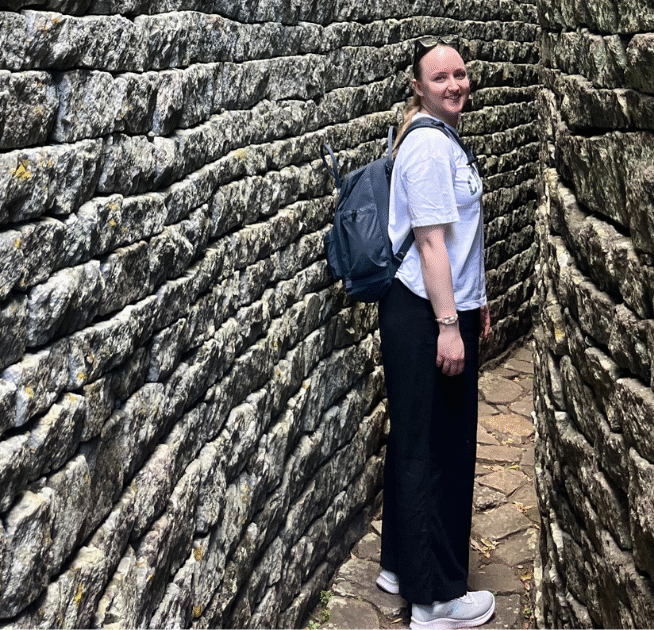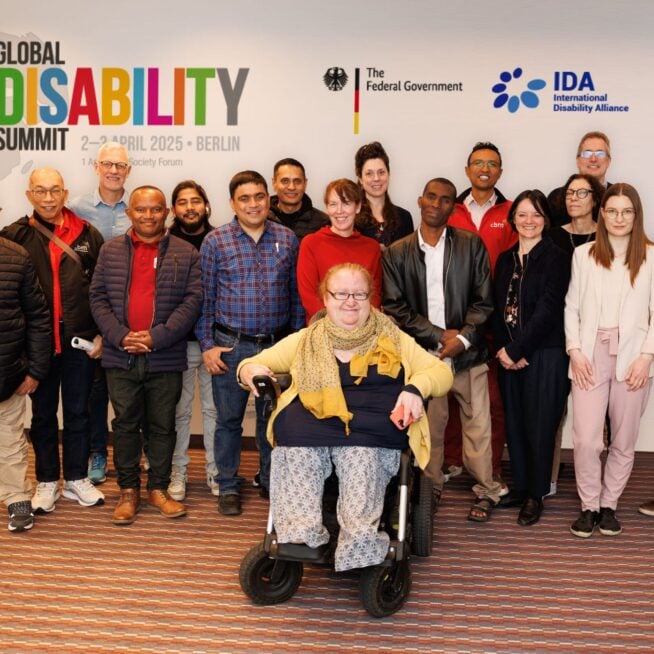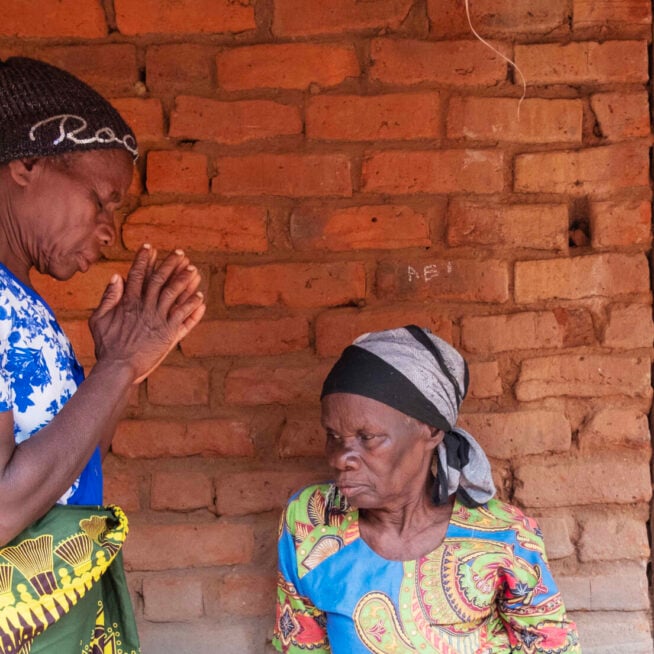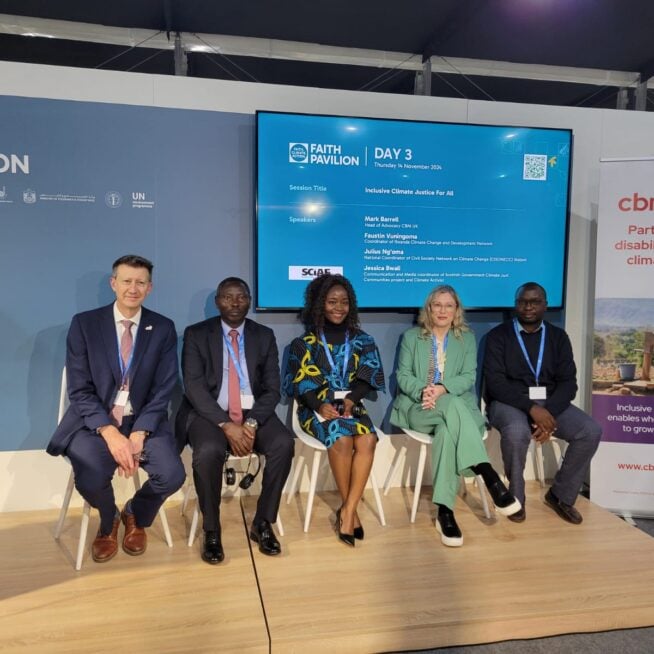Want to transform lives with us? Stay in touch and hear about our news, activities and appeals by email!
Carrying out maternal mental health training in Ghana
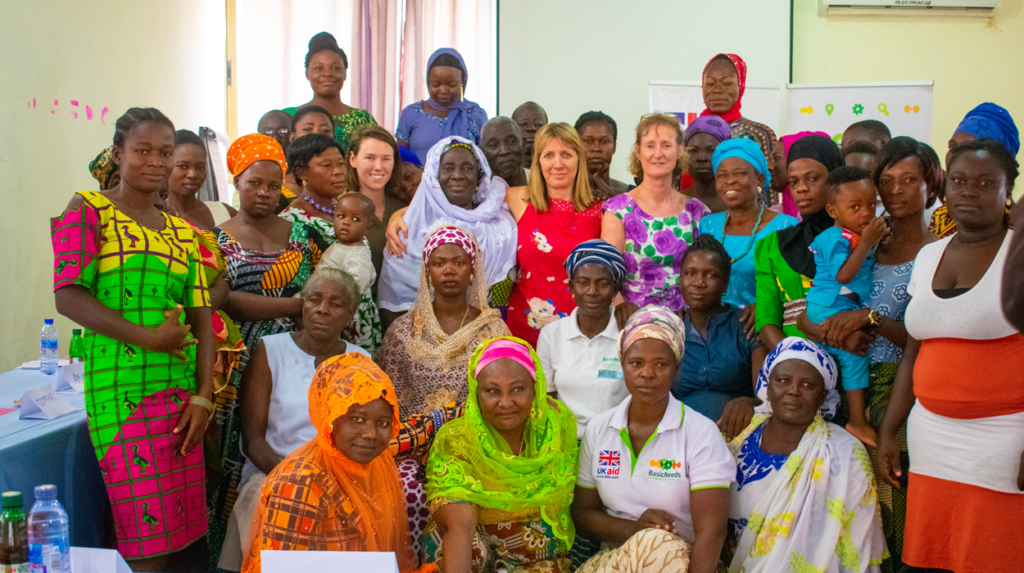
CBM is working in Ghana to improve mental health support for new and expectant mothers. The project, funded by Jersey Overseas Aid, the Headley Trust and the UK government through their Aid Direct programme, is training midwives and other health professionals to better recognise mental health conditions and provide suitable treatment and setting up peer support groups where women with mental health conditions and their family members can access advice and support.
As part of this project, in February 2019, NHS CBT therapists Sue Strand, Emma Layton and Rachel Dutton spent 5 days training project workers, midwives and peer support group leaders. In this blog, they talk about their experiences and learnings from the trip.
From 11th-16th February 2019, we carried out 5 days of training on Maternal Mental Health (MMH) to project leaders, selected midwives and peer support group leaders from different regions in Ghana. Two of us had not been to Africa before and none of us had been to Ghana, so it was certainly a bit of a culture shock. Everyone we met was friendly and warm, particularly the project team – the project managers from BasicNeeds Ghana, Adam and Peter, were very enthusiastic, they really wanted to learn from us and were helpful and supportive throughout our time in Ghana.
We weren’t sure what to expect in terms of the mental health services available in Ghana. We knew that CBM’s partners are working with people in communities where there are problems with depression and anxiety. What we discovered is that the lack of resources is a huge barrier for people living with mental health conditions – there are only 25 psychiatrists for the whole of Ghana, for a population of over 25 million people. A totally different ball game to what we’re used to in the UK.
The five days of training were split between the three different groups: project leaders, midwives and self-help group leaders. The main things we focussed on were ‘What are maternal mental health issues?’ and ‘What are anxiety and depression?’ We introduced a biopsychosocial model, to explain the biological, psychological and sociological factors leading to maternal mental health issues. This model helps people see that depression and anxiety are not the individual’s ‘fault’ and can lessen self-blame, social stigma and criticism. We discussed the implications on individuals, families and society when maternal mental health issues are not addressed, recognising that the family’s mental health is crucial to the well-being and economic success of society. We also discussed ideas around how people might express anxiety and depression and how we can help through using counselling skills i.e. listening and sharing.
Talking Therapies
The main thing that we do in our service is Talking Therapy. But we discovered that in Ghana, that’s a very unusual approach. They are still very much focussed on the medical model of mental health – professionals had a strong focus on medication. But whilst medication has a strong role to play in the care of many of the patients, evidence suggests talking therapies have an ever-increasing significance, enabling patients to have a better understanding of their distress and to develop strategies to manage their mood.
We found that in Ghana, they tend to treat people with severe mental health conditions, such as psychosis, but milder symptoms of depression and anxiety aren’t easily identified by professionals, family and community members and so aren’t treated early enough. At the same time, there is a massive lack of provision here as there are only 3 psychiatric hospitals in the country. This is why the promotion and availability of peer support groups is so important.
Mental Health Awareness

There was a huge variance in the levels of awareness around mental health conditions between the three groups. The project workers were mainly male, very motivated, highly educated and exceptionally keen and enthusiastic. The midwives were mostly female and were initially a bit guarded but seemed to really benefit from and enjoy the practical sessions we ran. They were really receptive, very quick on the concepts and worked well in groups. The peer support group leaders – people with lived experience of mental health and their family members – were very diverse and this was more challenging – some were literate, some illiterate and some nursing babies, which meant it was harder for them to focus on the sessions. But their positive feedback showed how much all three groups benefitted from attending the training.
We were struck by the lack of mental health awareness amongst the professionals – the midwives and the project workers. They obviously had a lot of empathy and sympathy but didn’t have that same sort of language to talk about mental health and time to focus on mental health as we do. Just as mental health was side-lined in the UK up until a few years ago, this is the case now in Ghana. Because people are facing issues of poverty and physical health in Ghana, these are naturally prioritised over mental health issues. In the UK, we are still working hard to make mental health more visible, more accepted, talked about and more money going into it. But in Ghana, the problem is on a much grander scale due to the lack of resources available.
Key Learnings
The main learning we took from our visit was seeing the disparity and the differences in other countries and how much you can take for granted in your own environment. The biggest barrier to people receiving support for mental health conditions seemed to be extreme poverty – there’s a desperate need for more infrastructure and funding in place to be able to address mental health issues effectively. This is why the work of CBM in Ghana is so vital, reaching people living in some of the poorest communities there.
CBM obviously has a very big task ahead of them but we were very impressed with the great progress being made to support women living with maternal mental health conditions. The team of CBM and partners were wonderful. The organisation of our visit was fantastic and no mean feat, with people coming from different parts of the country and the three of us travelling from the UK. We were so thankful to have been given the amazing opportunity and it was a truly memorable experience.
Sue Strand, Emma Layton and Rachel Dutton are Cognitive Behavioural Therapists working for the NHS in Mid-Sussex as part of a service called Time to Talk, which offers talking therapies to people struggling with depression or anxiety disorders. They have a particular interest in maternal mental health and have set up a postnatal depression and anxiety group within their Time to Talk service.
Images: Top – Sue Strand, Emma Layton and Rachel Dutton with the peer support group leaders who took part in the training in Ghana. Bottom – Sue Strand, Emma Layton and Rachel Dutton with the midwives that took part in the training.

